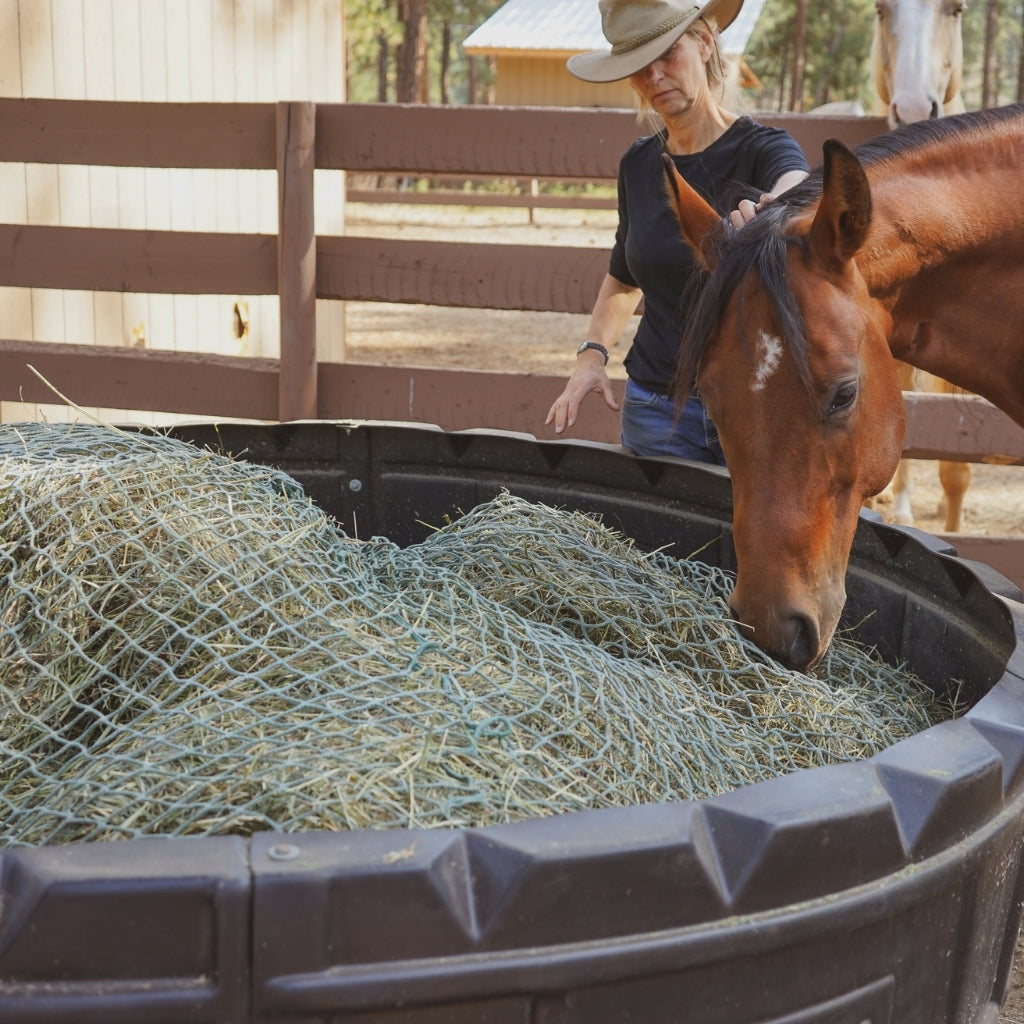Managing obesity and metabolic disorders in horses is essential for their overall well-being and longevity. These conditions can lead to various health complications, including laminitis and insulin resistance. By implementing proper weight management practices and promoting a balanced lifestyle, you can help your horses maintain a healthy weight and reduce the risk of metabolic disorders. This article will discuss practical strategies for managing obesity and preventing metabolic disorders in horses.
- Balanced Diet and Feeding: Ensure your horses receive a balanced diet with appropriate nutrient ratios. Consult with an equine nutritionist to develop a feeding plan tailored to their individual needs. Consider low-sugar and low-starch diets to minimize the risk of metabolic disorders, and feed each horse according to their workload, breed, and age. We highly recommend hay testing! As Hay is 95% of their diet, we need to have it correct or balanced.
- Regular Exercise and Turnout: Regular exercise is vital for maintaining a healthy weight in horses. Provide daily turnout or exercise opportunities that encourage movement and promote calorie expenditure. If your horses are not being ridden, incorporate various activities — such as ponying, free lunging, or creating a paddock paradise—to keep them active and engaged.
- Monitor Body Condition: Regularly monitor your horses' body condition scores (BCS) to assess their weight and overall health. Use visual and tactile assessment methods to determine if they are underweight, overweight, or within the healthy range. Adjust their diet and exercise regimen accordingly to maintain an ideal body condition.
- Grazing Management: Implement controlled grazing methods to prevent overconsumption of pasture, especially during high-sugar periods. Use grazing muzzles or strip grazing techniques to limit their grass intake. Additionally, consider offering access to a dry lot with a track system and hay nets to provide movement and reduce access to short-stressed grasses high in sugar pastures.
- Collaboration with Equine Nutrialists Professionals: Collaborate with your equine healthcare professional to develop a comprehensive prevention plan for metabolic disorders. Many good companies offer free consultations as well.
Effective management of obesity and prevention of metabolic disorders in horses requires a holistic approach. By implementing a balanced diet, regular exercise, monitoring body condition, managing grazing, and collaborating with equine professionals, you can significantly improve your horse's well-being and reduce the risk of metabolic disorders. Consistency and tailored care are key to maintaining their overall well-being and quality of life, giving you the satisfaction of knowing you're doing your best for your horse.
Horses on restricted diets require careful planning to ensure they receive essential vitamins, minerals, and protein sources to maintain their health and well-being. Consulting with an equine nutritionist is crucial to creating a customized feeding plan that meets your horse's specific needs while addressing any dietary limitations. Monitoring your horse's condition and adjusting the diet as necessary will help keep them healthy and happy even on a restricted diet. Remember that individual horses may have unique requirements, so a tailored approach is always best when it comes to equine nutrition.
Keywords: managing obesity in horses, equine metabolic disorder prevention, obesity prevention tips for horses, maintaining healthy weight in horses, preventing metabolic disorders in horses, equine metabolic syndrome prevention





